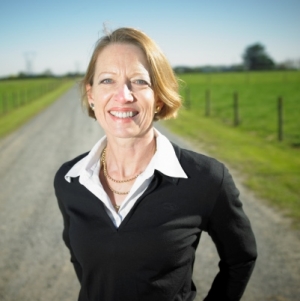More than 150 soil scientists from around 30 countries will meet in Queenstown in April to discuss the ins and outs of testing soil.
They will also look at the environmental impacts of increased fertiliser use on soil carbon and the increasingly important role of soil testing in environmental stewardship both now and in the future.
The symposium, held every second year at different locations around the world, is being hosted in New Zealand for the first time in its 26-year history.
Dr Roger Hill, managing director of Hill Laboratories, has been instrumental in bringing the event to New Zealand. He said the symposium is unique because it is focused solely on the role of soil and plant analysis, a tool which underpins fertiliser use.
"With pressure on primary industries to increase production, the role of testing as a means of monitoring soil health is becoming increasingly important. But in recent years, it has also played a major role in understanding the risks intensive farming systems may pose to the environment," says Hill.
Jacqueline Rowarth Professor of Agribusiness at the University of Waikato's Waikato Management School will give the opening address explaining the role that science has played in developing New Zealand's economy – which is still based on primary production, which relies on soil and plant testing.
Rowarth says one of the most important topics to be debated at the symposium is the maintenance of soil carbon levels and organic matter, which are becoming global issues.
"Work that I have been involved in indicates that when it comes to increasing food production, maintaining soil carbon and reducing the loss of nitrogen – you simply can't have it all. A compromise in the nutrient loss threshold means a sacrifice in at least one of these areas.
Rowarth is also facilitating the pre-conference workshop on computer modelling.
"Soil and plant testing and analyses generate a vast quantity of data, and it is increasingly easy to put those data into the computer and have 'an answer' to a question spat out. This puts the onus on the computer controller to ask sensible questions, and even more pressure on modellers to create sensible models."
She says at the moment New Zealand is heavy on policy, and increasingly on legislation, that allows computer models to be the arbiters of legislative cut off.
This means policy makers can declare a threshold of nutrient loss that must not be exceeded because the model provides an absolute answer about the amount of fertiliser that can be used – but she said the creators of the model know that it is based on 'plus or minus' variability. Part of the modelling session will focus on how scientists, modellers, policy makers, industry personnel and practitioners can work to find an acceptable compromise.



















